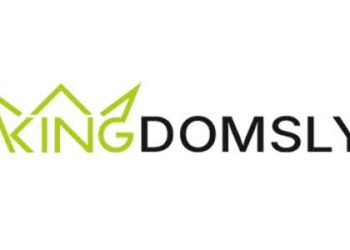South Koreans Flock to 1Inch After the Largest Exchange Lists the DeFi Token Along With AAVE
The largest cryptocurrency exchange in South Korea has listed three new coins, including the popular decentralized finance (DeFi) coins AAVE and 1INCH.
1INCH and AAVE were made available in the Korean Won (KRW) market along with the BTC market, where support for another token MASK was provided on Wednesday.
The minimum deposit amount for 1Inch is four 1Inch, 0.05 AAVE, and 1.5 MASK.
For now, Upbit only supports ERC-20 network deposits. Support for Binance’s blockchain BSC or any other networks is not supported yet.
By limiting the minimum orders, Upbit says it is creating a stable trading environment. Additionally, the exchange gave a warning of digital asset investment being exposed to rapid market price fluctuations due to speculative demand and changes in the domestic and foreign regulatory environment.
“There is a price difference between domestic and foreign exchanges due to the recent overheated trading environment,” it also noted.
As of writing, 1Inch is trading at $5.90, at a slight premium from other markets such as Binance, where it is trading at $5.60. Crypto assets on Korean exchanges usually trade at a kimchi premium, especially during bullish seasons.
1Inch pumped 90% on the back of the listing and is currently the most traded crypto asset on Upbit, accounting for 14.46% of the exchange’s volume compared to Bitcoin’s less than 11%, according to Coinmarketcap. Aave’s listing also helped the coin spike 36%, but it is the 6th most traded coin on Upbit.
This listing by Upbit, which accounts for the majority of South Korea’s crypto volume, actually helped the DeFi coins pump after a long time before the broad crypto asset prices took a 10% to 15% dump.
In other news, the National tax service is consulting domestic virtual crypto exchanges about the taxation of virtual currencies. Earlier this month, South Korea’s Deputy Prime Minister and Finance Minister, Hong Kam-ki, said the crypto tax rules would be enforced starting in January.
Under the new regulations, investors will be required to pay a 20% tax on personal crypto income of more than 2.5 million won or $2,100.
While some people are calling to suspend the government’s plan to tax crypto profits from next year, the government is going ahead with its plans.
The National Tax Service also categorizes deposits of crypto assets from private wallets to foreign exchange as income and imposes a tax on them on the assumption that the user got these cryptos for free.
“This is an area that has been controversial. Investors will be dissatisfied with this policy,” said an exchange official.



















